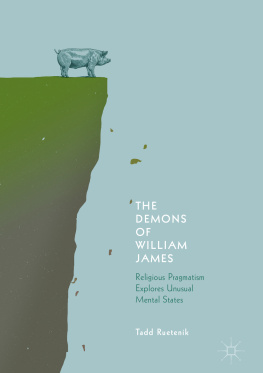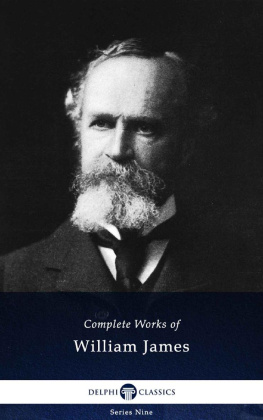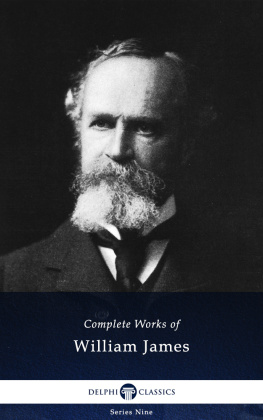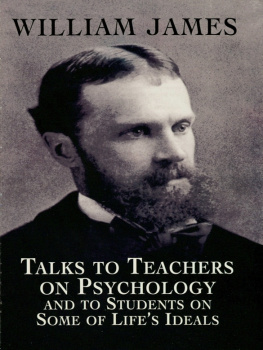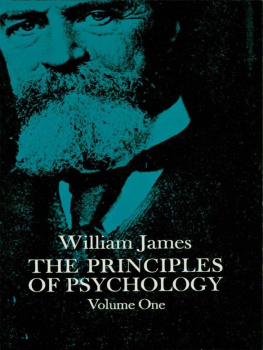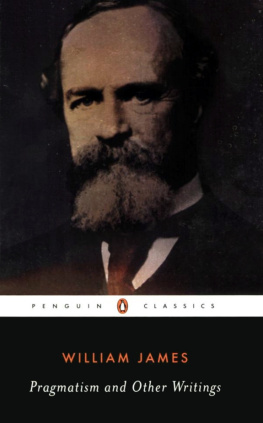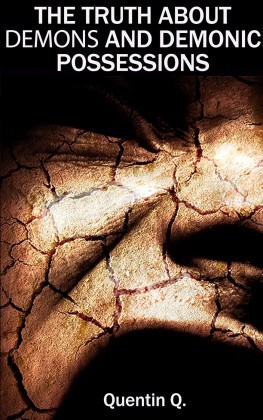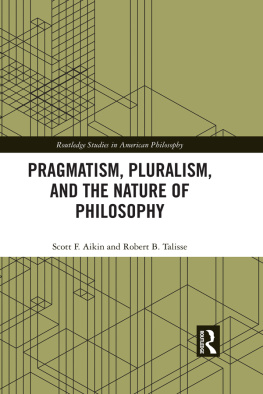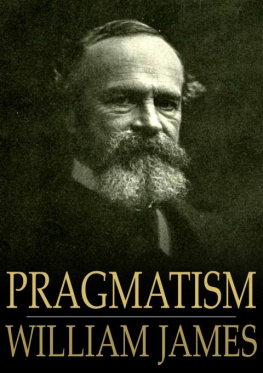1. James Family Vastation
That shape am I, potentiallyan internal voice of William James .
It has been a little more than 100 years since William James died. During the last 25 years of his life, he was involved with investigations for the Society for Psychical Research (SPR), a task that he took on in addition to his teaching, writing, and lecturing. Most books about James life and philosophy give relatively little attention to this part of James research, and for understandable reasons. Psychical research is often subjected to criticism from two sides: Traditional religious people are opposed to it on principle, because they believe it degrades religion, while orthodox scientific people are critical of it because they believe it degrades science.
I believe both of these sides are right, but I do not think it is necessarily a bad thing for belief systems to be degraded. The certainty of ones claim to truth should be tempered in relation to the certainty of a rival claim. The result of these competing pushes can be either a strengthening of each side, and subsequent antagonism, or the mutual weakening of each side, and subsequent relativism. Pragmatist philosophers try to mediate between authoritarianism and relativism by maintaining a belief in fallibilism . According to fallibilism , truth is not omnipotent but must continually prove its strength. There is truth , but it stands precariously over falsity.
James work was not grounded in any one discipline, but rather flowed through the fields of psychology , philosophy, and religious studies. It is probably because of this that he came to understand the fallibility of his work. I think his attitude toward psychical research in particular can be well illustrated by the famous Guido Reni painting of The Archangel Michael Defeating Satan , in which the angel has his foot on the neck of the opponent, whose back muscles remain tensed in resistance. Michaels sword is trained downward and, in the frozen medium of painting, never finishes off the opponent. One might see this painting as a sign of Gods triumph over evil , but in a Jamesian view, Renis work should be considered a sign of God always being in process of triumphing over evil . The Jamesian God is powerful, although not omnipotent, and calls people to fight with God for the realization of a world moving ever closer, but perhaps never arriving, at the Good. At his most dramatic, James considers this fight one of substantial risk.
Angels like Michael have eternal stamina and can withstand such tension better than humans. The fallibilist, if they are to maintain control of themselves, must hold the pose on their own. As philosopher James Pawelski notes, James presents two contradictory views in his famous Varieties of Religious Experience . On one view, there is what James calls a complex sacrificial constitution, in which a higher happiness holds a lower unhappiness in check, while on the other, there is one in which lower force is not to be preserved or consecrated in any final system of truth . It is, as James says, a waste element to be wiped out and forgotten (qt. in Pawelski , p. 76).
A pragmatist and fallibilist, James saw the grip that science was taking on religious belief, and he spent at least a quarter century trying to loosen St. Michaels foothold just enough to test out what the vanquished would do. This attitude constitutes something of a challenge, and during this time, James happened to be prone to heart trouble, back pain, eye pain, depression , and insomnia. Rumors suggested that these psycho-physical problems were caused by James exploration of the vagaries of religious experience in the uncertain universe of psychical research. Even the Boston Evening Transcript published an anonymous column speculating about the origins of James leave of absence from Harvard in 1900.
I have wondered a little whether the serious breakdown in the health of Professor William James, who has been spending his sabbatical year in Europe, had been precipitated or hastened by his psychic studies. I am not aware that they have been, but I know from observation that studies of this sort, particularly if they are persistent and earnest, constitute a grave menace to the health . Nature is very quick to resent too close an inquiry into the secrets which lie deep beneath her surface. I have seen several men derive a very ill result from a close study of this subject. Something in it lies close to the reservoir of nervous energy, and the study is very apt to start a leak, as it were, in this precious reservoir. There may be minds and bodies that can safely withstand the wearing effects of concentration upon psychic problems, but I do not believe they are many. (qt. in Zelder , pp. 235236)
Although this writer seems to be more superstitious than scientific, I confess I find it difficult not to consider their suggestion seriously. James believed that, in more superstitious times, people saw mediumship as something dangerous, while in our more enlightened era, people see it as harmless at worst. Maybe James was indeed tough-minded enough to endure the strain of ignoring, or at least keeping under control, any doubts about our ability to interpret phenomena according to our benevolent interests. Human history has been filled with fear of the demonic as much as reverence of its mysterious force. And American history in particular has shown how both fear and ignorance of the demonic have even led to violence, most notably during the witchcraft crisis in seventeenth-century Salem. From the points of view of both personal and social psychology , there is reason to be at least careful about the whole matter of trying both to bring out and control demons.
This book will neither superstitiously avoid the demonic nor, I hope, treat it with intellectual naivet. Yet the goal is not merely to find a foothold in the slippery ground between avoidance and naivet but to identify the demonic in what could be its most elusive and insidious form, namely, the dynamics of social compulsion, and even in the violence of scapegoating . The devil , they say, is in the details. I maintain, on the contrary, that the devil is found not in details, if by that we mean the details of an accused persons life and supposed motivations. The devil is more likely to be found, rather, in the general act of accusing. Demonic possession, I hope to show, is not just an individual phenomenon but a social phenomenon. This was manifest perhaps most notably in Salem, but it is also evident in seemingly benign activities such as hypnotism , mediumship , and channeling. This is not to say that hypnotists, mediums , and channelers are evil , or even necessarily harmful. It is to say that only by considering the full experienceincluding both the subject and their social environmentcan we hope to find the demonic, both potentially and actually. That shape am I , potentially, said James, in reference to a horrifying image of a human being that entered his mind once. I offer that, 100 years after James death , we should remember to say: that shape are we, potentially .
In one sense, James spiritualistic investigations had the kind of hubristic certainty that both religion and science sometimes display. True, he was not ultimately convinced by any evidence about the existence of an afterlife , evidence derived from mysterious sources that controlled his subjects in trances and other unusual mental states. He was, however, convinced that psychical research itself was good. Unlike both the religionists and the scientists, he did not have a shell of dogmatic assumptions to protect his mind . He could not rely on either church teaching or austere philosophical theory to allow him to automatically discount disturbingly aberrant phenomena. He did, however, have to toughen up his mind fibers through the exertion of having to interact directly with the extremes of psychology and religious experience. If late seventeenth-century Salem could experience a kind of contagion of tribal instinct, there is no reason why a Bostonian two centuries removed could not also be subjected to it, even if in a more attenuated form.

